DS Automobiles DS 4 vs Hyundai i30 – Which model is better for everyday use?
Two cars, one duel: DS Automobiles DS 4 meets Hyundai i30.
Which one wins in performance, efficiency and value for money? Find out now!
Costs and Efficiency:
Looking at overall running costs, both models reveal some interesting differences in everyday economy.
Hyundai i30 has a convincingly advantage in terms of price – it starts at 24000 £, while the DS Automobiles DS 4 costs 34000 £. That’s a price difference of around 9986 £.
Fuel consumption also shows a difference: DS Automobiles DS 4 manages with 5.20 L and is therefore barely noticeable more efficient than the Hyundai i30 with 5.70 L. The difference is about 0.50 L per 100 km.
Engine and Performance:
Power, torque and acceleration are the classic benchmarks for car enthusiasts – and here, some clear differences start to show.
When it comes to engine power, the Hyundai i30 has a barely noticeable edge – offering 140 HP compared to 130 HP. That’s roughly 10 HP more horsepower.
In acceleration from 0 to 100 km/h, the Hyundai i30 is to a small extent quicker – completing the sprint in 9.60 s, while the DS Automobiles DS 4 takes 10.90 s. That’s about 1.30 s faster.
In terms of top speed, the DS Automobiles DS 4 performs barely noticeable better – reaching 203 km/h, while the Hyundai i30 tops out at 197 km/h. The difference is around 6 km/h.
There’s also a difference in torque: DS Automobiles DS 4 pulls somewhat stronger with 300 Nm compared to 253 Nm. That’s about 47 Nm difference.
Space and Everyday Use:
Cabin size, boot volume and payload all play a role in everyday practicality. Here, comfort and flexibility make the difference.
Both vehicles offer seating for 5 people.
In curb weight, Hyundai i30 is noticeable lighter – 1291 kg compared to 1558 kg. The difference is around 267 kg.
In terms of boot space, the DS Automobiles DS 4 offers slight more room – 430 L compared to 395 L. That’s a difference of about 35 L.
In maximum load capacity, the Hyundai i30 performs barely noticeable better – up to 1301 L, which is about 61 L more than the DS Automobiles DS 4.
When it comes to payload, Hyundai i30 slightly takes the win – 509 kg compared to 442 kg. That’s a difference of about 67 kg.
Who comes out on top?
Overall, the Hyundai i30 shows itself to be dominates this comparison and secures the title of DriveDuel Champion.
It convinces with the more balanced overall package and proves to be the more versatile choice for everyday use.
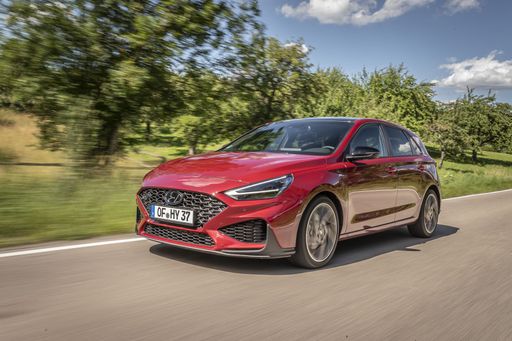
Hyundai i30
DS Automobiles DS 4
The DS 4 stands out in the compact premium segment with its striking design and distinctive flair. Inside, it offers a blend of luxury and comfort, featuring elegant materials and cutting-edge technology that enhance the driving experience. With its engaging performance and attention to detail, the DS 4 captures the essence of modern sophistication on the road.
details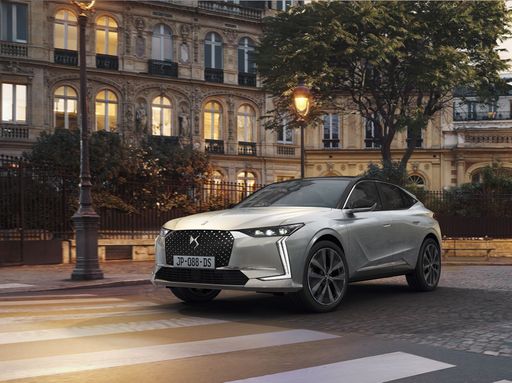 @ media.stellantis.com
@ media.stellantis.com
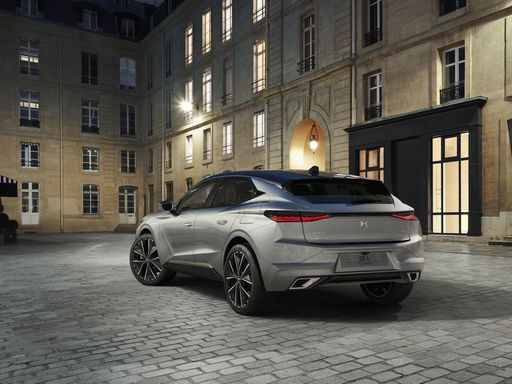 @ media.stellantis.com
@ media.stellantis.com
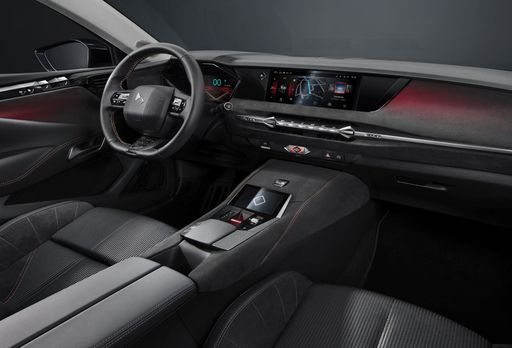 @ media.stellantis.com
@ media.stellantis.com
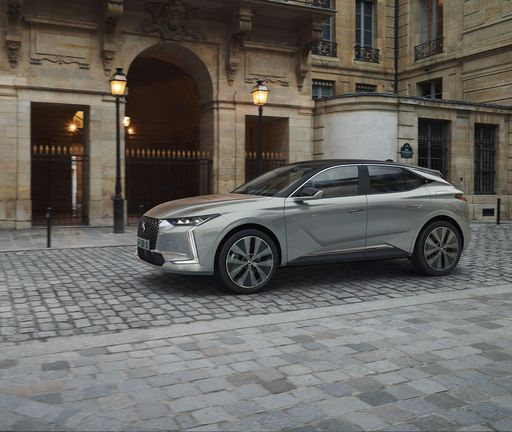 @ media.stellantis.com
@ media.stellantis.com
Hyundai i30
The Hyundai i30 stands out in the hatchback segment with its sleek design and modern features. It offers a comfortable ride with a well-crafted interior that caters to both driver and passengers. With its emphasis on safety and technology, the i30 provides a balanced driving experience suitable for urban and suburban environments.
details @ hyundai.news
@ hyundai.news
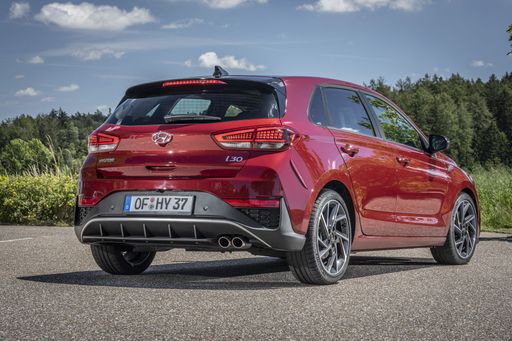 @ hyundai.news
@ hyundai.news
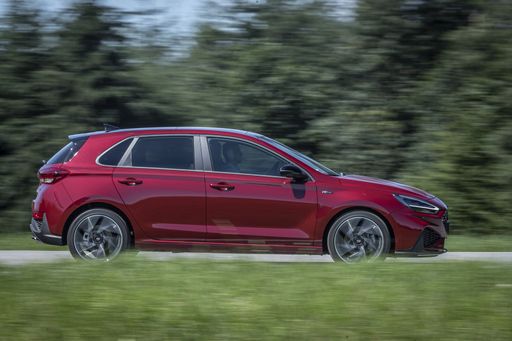 @ hyundai.news
@ hyundai.news
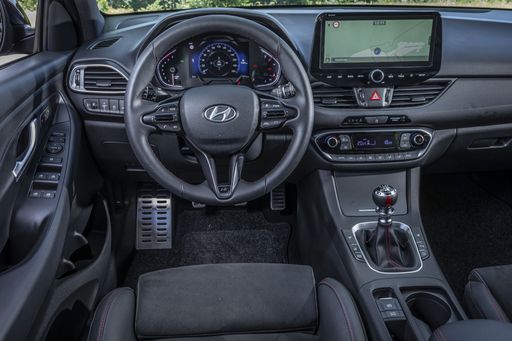 @ hyundai.news
@ hyundai.news
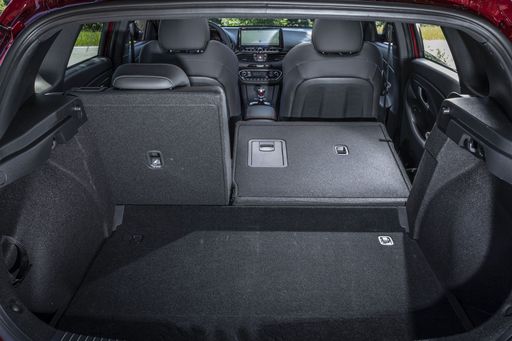 @ hyundai.news
@ hyundai.news

|

|
|
|
|
Costs and Consumption |
|
|---|---|
|
Price
34000 - 41700 £
|
Price
24000 - 29300 £
|
|
Consumption L/100km
5.20 L
|
Consumption L/100km
5.7 - 6 L
|
|
Consumption kWh/100km
-
|
Consumption kWh/100km
-
|
|
Electric Range
-
|
Electric Range
-
|
|
Battery Capacity
-
|
Battery Capacity
-
|
|
co2
137 g/km
|
co2
130 - 136 g/km
|
|
Fuel tank capacity
53 L
|
Fuel tank capacity
50 L
|
Dimensions and Body |
|
|---|---|
|
Body Type
Hatchback
|
Body Type
Hatchback
|
|
Seats
5
|
Seats
5
|
|
Doors
5
|
Doors
5
|
|
Curb weight
1558 kg
|
Curb weight
1291 - 1407 kg
|
|
Trunk capacity
430 L
|
Trunk capacity
395 L
|
|
Length
4400 mm
|
Length
4340 mm
|
|
Width
1830 mm
|
Width
1795 mm
|
|
Height
1470 mm
|
Height
1455 mm
|
|
Max trunk capacity
1240 L
|
Max trunk capacity
1301 L
|
|
Payload
442 kg
|
Payload
463 - 509 kg
|
Engine and Performance |
|
|---|---|
|
Engine Type
Diesel
|
Engine Type
Petrol, Petrol MHEV
|
|
Transmission
Automatic
|
Transmission
Manuel, Automatic
|
|
Transmission Detail
Automatic Gearbox
|
Transmission Detail
Manual Gearbox, Dual-Clutch Automatic
|
|
Drive Type
Front-Wheel Drive
|
Drive Type
Front-Wheel Drive
|
|
Power HP
130 HP
|
Power HP
100 - 140 HP
|
|
Acceleration 0-100km/h
10.90 s
|
Acceleration 0-100km/h
9.6 - 13.1 s
|
|
Max Speed
203 km/h
|
Max Speed
178 - 197 km/h
|
|
Torque
300 Nm
|
Torque
172 - 253 Nm
|
|
Number of Cylinders
4
|
Number of Cylinders
3 - 4
|
|
Power kW
96 kW
|
Power kW
74 - 103 kW
|
|
Engine capacity
1499 cm3
|
Engine capacity
998 - 1482 cm3
|
General |
|
|---|---|
|
Model Year
2024 - 2025
|
Model Year
2024
|
|
CO2 Efficiency Class
E
|
CO2 Efficiency Class
D, E
|
|
Brand
DS Automobiles
|
Brand
Hyundai
|
Is the DS Automobiles DS 4 offered with different drivetrains?
Available configurations include Front-Wheel Drive.
The prices and data displayed are estimates based on German list prices and may vary by country. This information is not legally binding.
